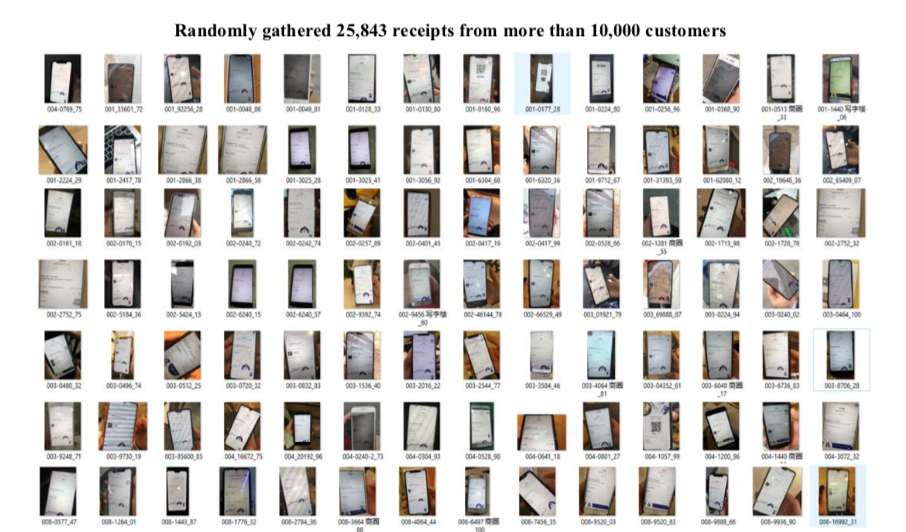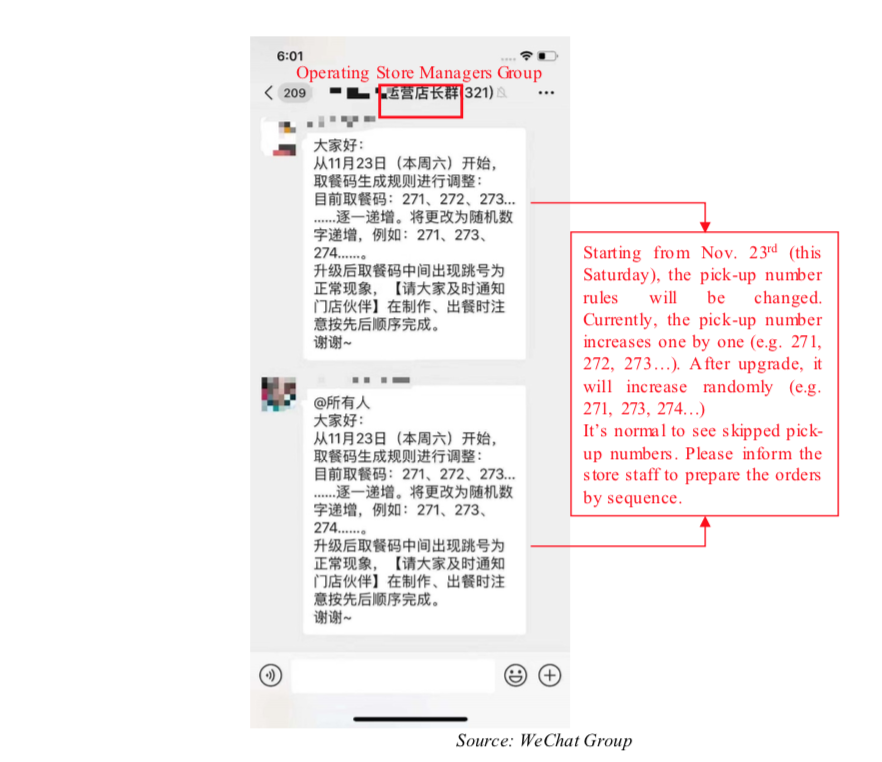This detailed report will be a big blow to Ruixing’s stock price and investor confidence.
The star consumer company Ruixing Coffee, which was successfully listed in the United States within two years of its establishment, has encountered the most severe market doubts since listing.
Muddy Waters Research, a well-known short-selling agency, recently published a long post on Twitter A 89-page Ruixing Coffee research report states that “in the third quarter of 2019 and the fourth quarter of 2019, the number of daily products per store has been exaggerated by at least 69% and 88%, respectively, and has 11,260 hours of store traffic video support “.
However, this short report was not made by Muddy Water itself, but from anonymous sources. But Muddy Waters stood on the platform and believed that the report was credible. Muddy water added the original text of the report to the tweet.
In the event of a short sniper, Ruixing Coffee fell more than 26% in the session.
Anonymous reports that the company has fabricated financial and operating data since the third quarter of 2019 following the 645 million IPO of Ruixing Coffee, which has evolved into a “scam.”
As soon as this short report came out, Ruixing Coffee’s stock price fell sharply: it fell more than 26% during the session and fell 10.74% at the close. Since the beginning of this year, Ruixing Coffee has dropped to 17.45% in total.
On the same day, the U.S. stock market suffered a general decline: the S & P 500 Index fell 1.77%, the Dow Jones Index fell 2.09%, and the Nasdaq Composite Index also fell 1.59%. Among the Chinese stocks, except for a small number of gains such as Youxin Used Cars and Bilibili, they all fell to varying degrees.
How does Ruixing Coffee’s so-called “scam” work? An anonymous report cited by Muddy Waters gave 5 points of evidence, 6 signals, and 5 business model flaws in Ruixing Coffee fraud.
“Fatal” evidence reported anonymously
First, the report states that in the third and fourth quarters of 2019, the number of products per Ruixing coffee shop increased by at least 69% and 88%, respectively. The report states that this evidence is supported by 11,260 hours of store traffic video.
The report states that since the fourth quarter of 2019, it has tracked offline data for 981 Ruixing coffee stores, including 100% of the operating hours of 620 stores. As a result, the average daily number of products sold in each store is only 263. Pieces. But lucky coffeeThe financial report and related documents show that in Q3 2019, the number of products sold per store per day was 444, and the Q4 is expected to be 483-506.
The report also collected 25843 customer receipts and found that Ruixing Coffee has increased the net selling price of each item by at least 1.23 yuan or 12.3%, and may artificially maintain its business model. But in reality, losses at the store level are as high as 24.7% -28%. Excluding free products, the actual sales price is 46% of the listed price, instead of 55% claimed by the management of Ruixing Coffee.

The 25843 customer receipts and VAT figures obtained in the report show that in the third quarter of 2019, the contribution rate of Ruixing Coffee’s “other products” was only about 6%.
The report also analyzed the tracking data of third-party media, saying that Ruixing Coffee exaggerated 150% of advertising spending in the third quarter of 2019, especially on Focus Media. Advertising fees to boost revenue and store-level profits.
The report authors said that the evidence and 25843 customer receipts and 11,260 hours of store traffic videos came from 92 full-time and 1,418 part-time investigators they hired.
Obviously, this is a large-scale and well-targeted investigation operation, and it requires Ruixing Coffee to give fairly strong evidence to respond and explain.
The most impactful and intuitive material is the notice announcement chat record of the store manager group operating inside Ruixing Coffee. The report states that “jump orders” are an easy way to mislead investors as more and more investors and data companies start tracking Ruixing’s order numbers as part of the due diligence process.
In order to understand the real scale of the online order expansion of Ruixing Coffee, the report randomly selected 151 Ruixing coffee stores to track online orders. The report places an order at the beginning and end of a store ’s business hours to obtain the number of online orders for that store that day. The report then found that the number of online orders in the same store on the same day swelled from 34 to 232, with an average of 106 orders per day. This is also one of the routines used by some traffic companies to order.
 < / p>
< / p>
Similar detailed internal financial and operating data, as well as photos of real scenes, screenshots, invoices, and business information. The 89-page report also contains a lot.
In addition to accusing Ruixing Coffee of serious fraud, the report also re-questioned Ruixing Coffee ’s business model, including: China ’s core coffee consumer market is small; Ruixing Coffee ’s customers are too pricey Sensitive, unable to increase customer unit price; no profit; products other than coffee have no core competitiveness and no loyal customer base.
In addition, the report also issued a warning signal to the major shareholders and management structure of Ruixing Coffee. The report said that although the management of Ruixing Coffee emphasized that they had never sold any shares in the company, they had cashed out through stock pledge financing and realized 49% of the stock holdings (or 24% of the total issued shares).
Then, the report also disclosed the past capital game of Ruixing Coffee ’s largest shareholder, Lu Zhengyao, and believed that his capital operation on the project of Ruixing Coffee seemed familiar.
The report also questioned Yang Fei, CMO of Ruixing Coffee, who is the most controversial growth factor. In the sixth warning signal of the report, the 9-page report pointed out that Yang Fei, the co-founder and CMO of Ruixing Coffee , had been sentenced to 18 months in prison for the illegal operation of paid deletion. At the time, he was the co-founder and general manager of Beijing Word of Mouth Interactive Marketing Planning Co., Ltd., which was in a related transaction with Ruixing Coffee. This was also reported in Chinese media before the listing of Ruixing Coffee; however, when Ruixing Coffee was listed, Yang Fei still appeared at the ringing scene.
Much muddy waters
Since the birth of Ruixing Coffee, its marketing strategy and business model have been controversial.
After the successful listing in 2019, Ruixing Coffee has successively launched new business lines such as tea brand Xiaolu Tea and unmanned vending machine “Swiss Cost-effective”. In the third quarter financial report released by Ruixing Coffee in November 2019, revenue of this quarter was 1.54 billion yuan, an increase of 539% year-on-year and 69% month-on-month; net loss reached 531.9 million yuan, an increase of 9.6% year-on-year and a decrease of 22% ; The number of users increased to 30.7 million, and the number of new users reached 7.9 million. In addition,

 < / p>
< / p>
Since the birth of Ruixing Coffee, its marketing strategy and business model have been controversial.
After the successful listing in 2019, Ruixing Coffee has successively launched new business lines such as tea brand Xiaolu Tea and unmanned vending machine “Swiss Cost-effective”. In the third quarter financial report released by Ruixing Coffee in November 2019, revenue of this quarter was 1.54 billion yuan, an increase of 539% year-on-year and 69% month-on-month; net loss reached 531.9 million yuan, an increase of 9.6% year-on-year and a decrease of 22% ; The number of users increased to 30.7 million, and the number of new users reached 7.9 million. In addition,